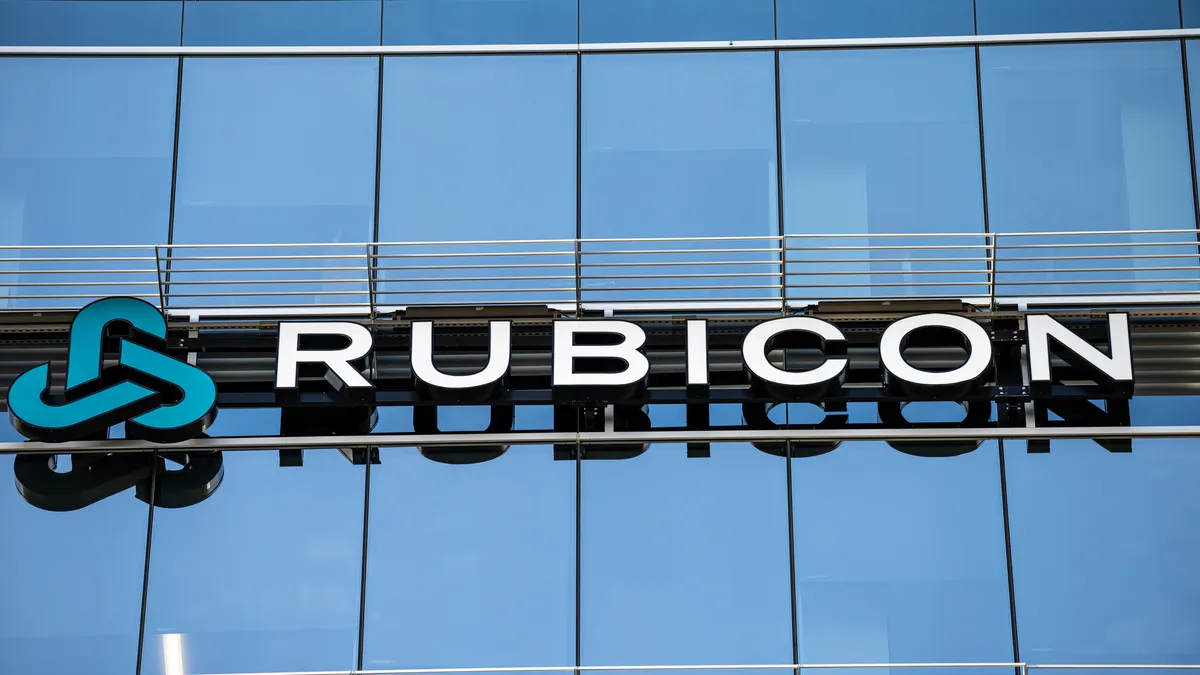Dive Brief:
- Digital waste brokerage firm Rubicon entered an agreement with lenders in May to pursue a sale of the business, according to its most recent quarterly earnings filing.
- The company was given 300 days to complete a sale of all or most of its assets and repay its debts. The agreement was made in conjunction with Rubicon’s sale of its software-as-a-service business to a company backed by two of its major investors.
- Rubicon has used the proceeds from the latter deal, which it announced on May 7, to pay down some of its debt. A spokesperson for Rubicon did not respond to a request for comment on the take-private offer.
Dive Insight:
Rubicon took the deal for its software-as-a-service business to stabilize the publicly traded company's financials. Its stock was delisted from the New York Stock Exchange in June, and its C-suite has seen an overhaul this year.
In February, Chief Operating Officer Renaud de Viel Castel left the company amid a larger round of layoffs. Rubicon’s president and CFO, Kevin Schubert, resigned effective June 1. CEO Phil Rodoni resigned the same month.
The company is now led by interim CEO Osman Ahmed, who was previously the CEO of the special purpose acquisition company that merged with Rubicon to take the company public in 2022. Ahmed served as the lead independent director on the company’s board following that transaction.
Ahmed began serving as interim CEO on June 27 with a base salary of $500,000. He is eligible for a transaction bonus also worth $500,000 if the company is sold, recapitalized or otherwise involved in a transaction for all of its assets within a year of his stepping into the role.
The deal for Rubicon’s software business netted the company $61.7 million in up-front cash. It also included a transaction in which investor Jose Miguel Enrich acquired $20 million worth of stock in the company, growing his stake to 59.5% of the company. The deal also offered additional payouts based on the performance of the software business through the remainder of the year, and an additional $2.5 million payout if Rubicon agrees to sell to an entity controlled jointly by Enrich and Andres Chico, another major investor.
Rubicon has used the combined proceeds from that transaction, which totaled about $81.7 million, to pay down its debts. That included $57 million to pay down the balances of a June 2023 term loan set to expire next year and a June 2023 revolving credit facility. The latter provided Rubicon with access to $90 million in capital, but it had only about $200,000 left available by the second quarter.
When Rubicon finalized the sale of its software business, it also struck a deal with its lenders to sell “all or substantially all” of the company assets within 300 days of May 7. That agreement includes two milestones: Rubicon must enter into a letter of intent for a sale within four months and it must consummate the sale and repay all debts in full within 10 months.
Enrich had previously offered to buy out Rubicon in a take-private deal in March. At the time, the company had reported progress on its profitability plan but was still negotiating to keep its position on the New York Stock Exchange. The company’s sale of its software business happened about two months after that offer was made public.
The sale of Rubicon’s software business helped boost the company’s financials in the second quarter, according to an earnings release. Rubicon reported its revenue was down 5.1% to $163.1 million, and its gross profit was down 54.6% to $4.5 million. But the company’s net income — $27.3 million — was up 219% compared to the second quarter of last year.
“We’re thrilled with our Q2 performance, where our team’s relentless focus on customer success and strategic account management has paid off,” Ahmed said in a release. "By signing new customers and unlocking upsell opportunities within our existing base, we have demonstrated that when our partners win, we win. We look forward to building on this momentum and achieving even greater success going forward."
The company reported uncertainty about its ability to meet its financial needs for the next 12 months — as of June 30, it had $8.2 million in cash on hand. Rubicon reported focusing on operational efficiencies and cost reductions in the quarter. It also signed some new clients, including The Army & Airforce Exchange Service, Fortune Brands, TK Elevators and the Veterinary Emergency Group, and it renewed its contract with “a leading big-box retailer” across more than 1,800 sites through 2027, according to its press release.
The company did not schedule an earnings call for the second quarter.











